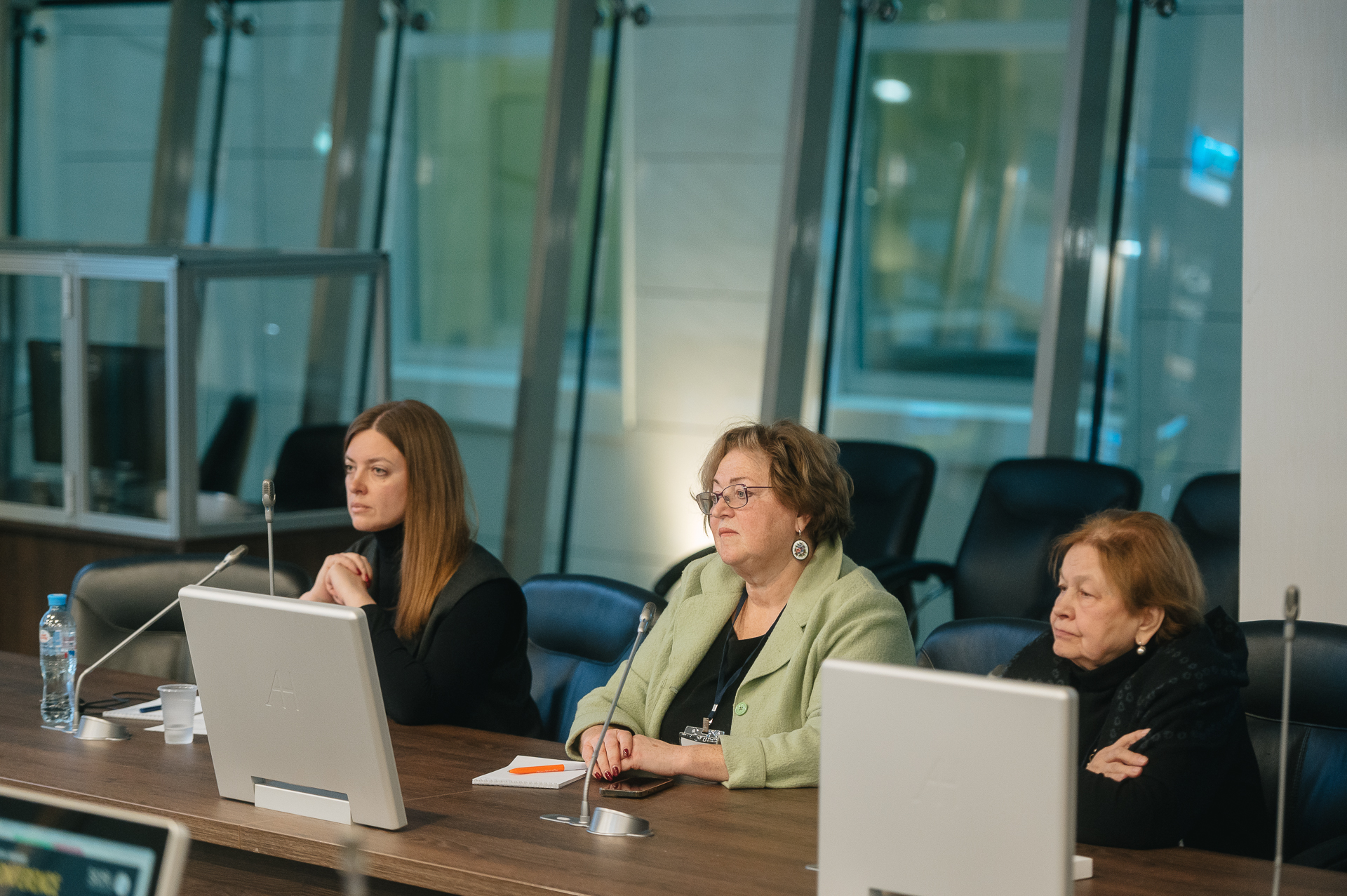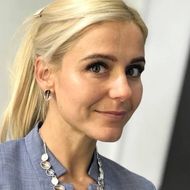Foreign Language Specialists Share Insights from Teaching and Research Experience
On November 29–30, HSE University hosted the Third International Online Conference 'Languages, Education, Development' (HSE LED Conference). The conference was attended by more than a thousand participants, including researchers and teachers, methodologists, language education experts, administrators, and business representatives. They discussed the challenges of teaching and learning languages in today's world and presented their research findings.
The conference was organised by the School of Foreign Languages, a major HSE University subdivision that conducts research, offers bachelor's, master's, and doctoral programmes, defines the overarching strategy for teaching foreign languages at the university, and facilitates the development and implementation of the foreign language teaching system across all HSE University campuses.
'At the conference, we look forward to sharing the results of the school's endeavours in research, education, and international projects. We welcome presentations from our colleagues at partner universities with great enthusiasm. The number of participants attending our conference has been steadily increasing each year, which is truly inspiring. In addition to its undeniable academic significance, the conference serves as a platform for fostering networking, establishing new contacts, and strengthening bonds within the professional community,' said Ekaterina Kolesnikova, Head of the School of Foreign Languages, in her welcoming address.
The conference participants represented educational organisations such as MGIMO University, RUDN University, MIPT, Herzen University, RANEPA, MGSU, Pushkin State Russian Language Institute, the Institutes for the Development of Education of the Republic of Tatarstan and the Kirov Region, Yaroslavl Higher Military School of Air Defence, and many others. The conference was also attended by colleagues from other countries. Prosveshcheniye Publishers was the key partner of the event.
Representatives of the HSE School of Foreign Languages, Pacific National University (PNU), Naberezhnye Chelny State Pedagogical University, and the Polytechnic School of Federal University of Rio de Janeiro made presentations during the plenary session.
Olga Egorova, Acting Director of the PNU Institute of Linguistics and Intercultural Communication in Khabarovsk, discussed the recent changes in language policy that have influenced foreign language education at her university.
'Now we can confidently assert that there has not only been a turn towards the East, but also an activation of the Eastern dimension in education,' said Egorova. 'In our case, this has manifested in the trend for our students to prioritise Chinese by selecting it as either their second or primary foreign language. Furthermore, the weakening position of the English language becomes even more apparent when analysing the preferences of prospective students in selecting European languages for their studies.'
Egorova further explained that while a few years ago, English was the preferred option among European languages for students, today, prospective students more frequently opt to learn French alongside an Asian or African language—primarily Chinese, but also Korean or Japanese. This trend is attributed not only to the specific geographical location of Khabarovsk, with its proximity to the border with China, but also to recent geopolitical developments, the resurgence of ties with Africa, and the increasing number of prospective students from francophone African states.
A presentation by Gulnur Polkina, Dean of the Faculty of Philology at Naberezhnye Chelny State Pedagogical University, centred on using virtual mobility to aid students in developing intercultural communication skills.
She mentioned that her university had established all the necessary conditions for the implementation of virtual mobility programmes. In the framework of the federal programme 'Teacher of the Future Generation of Russia,' her university, alongside other pedagogical HEIs in the country, has been equipped with technology and set up a technology park for universal pedagogical competencies and a Quantorium pedagogical technology park. Additionally, as part of the federal project 'Human Resources for the Digital Economy,' Innopolis University provided continuing training to teachers on the integration of digital technology into the educational process.

One of the pedagogical university's virtual mobility initiatives has been a joint project with Kyzylorda University in Kazakhstan to build students' linguistic and cultural competencies. Furthermore, the university has established open education centres offering courses in Russian, along with Russian language learning centres in Algeria and Turkmenistan. 'The existing political constraints have prompted an expansion of international projects through new collaborations with universities in Central Asia and Africa,' Polkina concluded.
Linguatest, a testing system for certification in foreign languages, was mentioned at numerous sessions throughout the conference. Speaking at the plenary session, Ekaterina Kolesnikova referred to Linguatest as an innovation that originated at the HSE School of Foreign Languages and has been implemented jointly with Russia's National Accreditation Agency for Education and Prosveshchenie Publishers. She described the system as a tool for identifying talent. 'We have developed our own system, including educational and methodological components, textbooks, and other materials, along with tools for assessing readiness for academic and business communication in a foreign language. English is merely the initial language we have incorporated so far,' she emphasised.
Presentations made during conference sessions spanned a diverse range of subjects, including artificial intelligence tools for teachers, intercultural communication with its contexts, trends, and prospects, challenges and solutions in the professional development of foreign language teachers, the pedagogical and educational potential of foreign-language digital communication on social networks, preparation for the Unified State Exam in English, and more.
One of the conference highlights was an expert interview with the HSE Vice Rector Sergey Roshchin, in which he elaborated on challenges and prospects of higher education and specifically on HSE University's experience. He addressed the relationship between universities and employers, discussed the advantages of microdegrees, explored the use of artificial intelligence in the educational process, and presented the findings from a recent study on the career trajectories of university graduates with honours degrees. These graduates seem to secure higher-paid jobs, marking the first time this finding has been supported by empirical evidence.
See also:
Real Tasks and Direct Interaction with Employers: HSE School of Foreign Languages Holds Poster Session
For the second time, the HSE School of Foreign Languages has held a defence of specialised projects developed by fourth-year students of the Bachelor’s Programme in Foreign Languages and Intercultural Communication. Representatives of major companies and organisations that support the school’s project activities gathered to evaluate the projects during a poster session.
‘Language Education Holds Lasting Value’
On December 5–6, HSE University hosted the 4th HSE LED Conference: Languages, Education, Development organised by their School of Foreign Languages. The conference was held in an online format and was dedicated to current trends in the development of modern linguistic and pedagogical knowledge. Over two days, more than 1,200 people took part.
‘This Important Day Will Be Written in the History of the School of Foreign Languages’
At the end of December, the HSE School of Foreign Languages held its first-ever defence of student projects with the participation of industry partners representing large companies and organisations. Third and fourth-year students of the Bachelor's Programme in Foreign Languages and Intercultural Communication presented their works to the members of the expert committee.
‘A Creative Event that Makes Us Happier’
Decemberfest is an annual festival for first-year students, teachers, and applicants of the HSE School of Foreign Languages. The school currently offers courses in nine foreign languages: German, Spanish, French, Italian, Chinese, Japanese, Dutch, Turkish, and Hebrew.
Linguatest Comes to Khabarovsk
Linguatest,the recently launched Russian foreign-language certification testing system developed by HSE University specialists, continues to develop and expand its geographic scope. Test centres are currently open in Moscow and Nizhny Novgorod, and a new one is set to appear in Khabarovsk.
HSE University Launches Linguatest, a Domestic Foreign-Language Testing System
Linguatest is available in two versions: academic and business. It can be taken in person at dedicated centres or online in proctored sessions. Registration in now open for the first exam sessions in Moscow in December 2022.
'I Dreamed of Studying at HSE University'
Maria Belousova, an applicant from Uzbekistan, will become a first-year student at HSE University in autumn 2021. She will study at the HSE University Moscow campus in the School of Foreign Languages. The News Service asked Maria why she chose HSE University, why she was interested in her chosen educational programme and how difficult it was to apply for University remotely.
HSE University Teaches Languages As a System, an Instrument of Communication, And As a Reflection of Culture
The Bachelor’s programme in Foreign Languages and Intercultural Communications, offered by the HSE Faculty of Humanities, is popular not only with Russian and international applicants alike. The programme helps students develop a broad outlook, as well as their communicative and analytical skills. The curriculum focuses on language teaching, translation and interpreting, intercultural business communication, and text creation. In an interview with HSE News Service, two international students talk about what attracted them to the programme and what they like about their studies, HSE University, and Moscow.
Foreign Languages That You Can Learn at HSE University
Improve your German, learn Chinese from scratch, or dive into business English – these are just some of the options offered by the HSE School of Foreign Languages’ Centre for Language and Methodology Training. HSE News Service talked to Tatyana Baranovskaya, Head of the Centre, and Ekaterina Kolesnikova, Head of the School of Foreign Languages, about their new programmes and the centre’s goals.
HSE Student Wins 2015 Labcitoyen French competition!
Tatiana Shakhova, a third-year student in HSE’s Faculty of World Economy and International Affairs, has won the 2015 Labcitoyen competition. This year’s Labcitoyen competition was carried out by the Institut Français (Paris) and the Institut Français of Russia as part of preparation for the United Nations Climate Change Conference, or COP21, scheduled to take place in Paris in November and December 2015. The grand prize was a trip to Paris to attend the conference.



